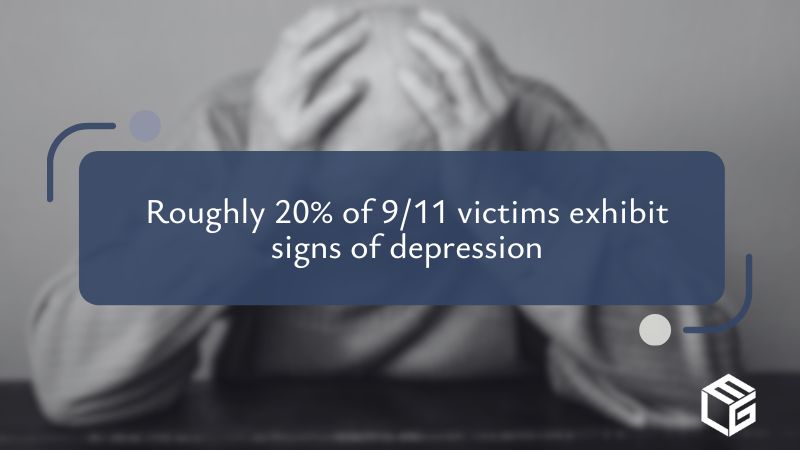-
About »
- Insulin MDL
-
Cases »
- Diseases
- Testimonials
- Government
- Contact
- Get Help Now
-

Major depressive disorder (MDD) is what some people call clinical depression. This diagnosis is one of the most common mental health conditions, with approximately 5% of adults experiencing it. MDD can be recognized by its markers of consistent feelings of sadness and an absence of interest in daily activities.
After the 9/11 tragedy, MDD greatly increased among survivors, rescue staff, residents, and others near Ground Zero. Studies have found that an estimated 10% of 9/11 disaster response workers experience MDD in the years after the terrorist attacks. On the other hand, roughly 20% of 9/11 victims exhibit signs of depression. Unfortunately, these symptoms have progressed into MDD for a handful of people.
Claim ApplicationMajor depressive disorder is more than just feelings of sadness; it’s a draining mental condition that can noticeably impact a person’s quality of life. To get a better view of this condition, take a look at its physical and psychological signs and symptoms as stated by the World Health Organization:
Nearly 400,000 people fell victim to the 9/11 incident. Losing a loved one and experiencing physical injuries can cause intense stress. For some, this spike in stress levels triggered emotional pain that later led to MDD. Getting an early diagnosis of MDD is a big help in coping with the condition. In addition, those who suffer from MDD due to 9/11 trauma can also seek support and compensation through the 9/11 Victim Compensation Fund.
Gain financial benefits provided by the 9/11 Victim Compensation Fund (VCF) if your major depressive disorder can be tied to the 9/11 events. To qualify for the VCF claim, documents such as evidence of presence in the exposure zone and a medical diagnosis for MDD are needed.
A VCF claim can provide helpful benefits such as compensation for lost income and healthcare expenses. Furthermore, 9/11 victims with MDD may also receive compensation for pain, suffering, and emotional distress.
ELG Law is dedicated to providing legal support for survivors, first responders, and others affected by the 9/11 attacks. Our competent and experienced attorneys have 35 years of experience with toxic exposure claims. So, if you or someone close to you has developed major depressive disorder as a result of the 9/11 attacks, we encourage you to contact ELG Law today. Our legal team will give you the assistance you need to get through the claims process and help you secure your compensation.